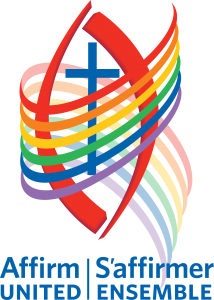Valentine’s Day is coming up quick. The season of love represented by cute cards, pretty flowers, and sweet candy/. A day to celebrate romantic love, and the love shared between friends, colleagues, classmates… really it’s just a chance to tell those special people in your life that you love them. Who can argue with that?
Well, it turns out, that Jesus could. And he kind of did, right in the middle of the Sermon on the Mount. I mean the author of Matthew’s Gospel doesn’t specifically say, “and therefore Jesus said unto them “I hate valentine’s day”… of course, there wasn’t valentine’s day in Jesus’ time. But let’s just suspend reality for a bit and say there was a Biblical valentine’s day…. well, if our reading today is any example, Jesus wouldn’t have been putting his energy into celebrating. Why? Well, because it’s just too easy. It’s too easy to love the people that we already like a lot. It’s easy to love our pals, our parents, our grandparents, our partners, our children… the ones who typically love us back. Sure, there are bumps in the road sometimes as we humans are known to squabble and disagree from time to time, but for the most part it’s not terribly difficult to love the people who make up our closest circles. Jesus even goes as far as saying, “Don’t even the tax collectors and the gentiles do the same?” which could be interpreted as meaning: “any idiot can do THAT” Wow, Jesus, getting a little salty there.
What Jesus really does is challenges his friends, his followers, and US to do is to LOVE OUR ENEMIES. It’s likely you’ve heard this before, and sure, the word enemy can feel rather dramatic especially when we Canadians generally have a culture of being nice to one another, right? Even if we’re not terribly fond of someone we will grit our teeth and smile, and at least be civil when we see them, particularly if they look like us, talk like us, and live in our community. But as our world slips farther into a culture of intolerance, it has become unfortunately more common to label someone as an enemy if they look, act, speak or think differently than we do – and there are people who seek to increase their own power by convincing us that our differences do matter.
Jesus knew about this of course. Intolerance isn’t the invention of the last century – although we certainly do have new ways of expressing it, thanks Facebook. The earliest Hebrew Scriptures tell stories of the Egyptians turning the Hebrew people into slaves because they were different, of Joshua and the Hebrew people conquering the land of the Canaanite people who were different, and the Babylonians conquering and exiling the people of Judah because they were different. It’s almost always a dispute over land or resources, but it’s easier to destroy or exile people if you think they are suspicious or some how less than human. Leaders often used that to gain support and shore up their own power, you betcha we are seeing the very same thing happening today. Nothing gets humans fired up to donate, show up, vote or support something or someone more than fear and hatred of a group other people who are some how different.
Valarie Kaur, our Holy Troublemaker for today, absolutely refuses to stand by quietly when dehumanization and oppression is rooted in intolerance of the other. Valarie takes a somewhat startling and maybe even nonsensical approach – she uses love. Revolutionary Love, as she describes it. Love for… enemies. Sound familiar.
Valarie is a practicing Sikh woman from California. And she experienced her very first act of racism against her when she was six. On the school yard, spoken by other children. She ran to grandfather in tears, and he gathered her up on his lap and spoke words from Guru Nanak, the founder of the Sikh faith, to her: “I see no stranger,’ said Nanak, ‘I see no enemy.” Valarie spoke of that moment in her 2017 TED talk and she said: “my grandfather taught me that I could choose to see all the faces I meet and wonder about them. And if I wonder about them, then I will listen to their stories even when it’s hard. I will refuse to hate them even when they hate me. I will even vow to protect them when they are in harm’s way.
Fast forward to Valarie as a young adult, watching as the twin towers fell. In the aftermath of the 9/11 a wave of suspicion and fear spread across the country fueled by images of turbaned, brown skinned, bearded men as being the instigators of the violence. People who looked just like Valarie’s grandfather. Not many days after the attack, the first racially motivated murder took place, a self proclaimed “patriot” shot and killed a Sikh man – a man wearing a turban, bearded and brown skinned – who just happened to be standing in front of his gas station in Arizona. The killer saw the turban, beard, skin, and thought “terrorist”. This person was a dear family friend of Valarie, Balbir Singh Sodhi, a man she had always called uncle.
Unsure of what she could do in the moment, Valarie sought out the widow of her “uncle” and asked her, “What would you like to say to America right now?” Her response: “Tell them thank you.” You see, the local news station carried the story of Balbir’s death, and three thousand people came to his funeral. Strangers, friends, family all wept together. Sikhism teaches that there is one God and all people are equal, that the divine is in everyone, and that the follower’s of the Guru are to be committed to love and justice. Valarie knew that there was power in the stories that we hear, and they can help us understand one another – turning strangers into friends.
Valarie decided to put her law degree and her videography skills to work, sharing the stories of people across the country, attempting to change the world and make it safer, kinder through these stories. And then she had her son, and her hopes came crashing down. She realized he was going to grow up in a country more dangerous for him that the one she was given. And there would be moments when she could not protect him when people categorized him wrongly as terrorist. Just as black people in America are still seen as criminals; brown people, illegal; queer and trans people, immoral; indigenous people, savage; women and girls, property. When those in power fail to see the humanity in those who are different, it becomes easier to ban, detain, imprison, sacrifice entire groups of people for the illusion of security.
15 years later, Valarie returned to the gas station where Balbir Singh Sodhi was killed. She brought his brother, Rana with her. Valarie says: “I set down a candle in the spot where he bled to death. His brother, turned to me and said, ‘nothing has changed.’ And I asked him “who have we not yet tried to love?” We decided to call the murderer in prison. The phone rings, my heart is beating in my ears. I hear the voice of Frank Roque, a man who once said, ‘I’m going to go out and shoot some towel heads. We should kill their children too.’ And every emotional impulse in me says, “I can’t” It becomes an act of will to wonder. “Why?” I ask. “Why did you agree to talk to us?” Frank says, “I’m sorry for what happened but I’m also sorry for all the people killed on 9/11” He fails to take responsibility. I become angry to protect Rana, but Rana is still wondering about Frank – listening – responds, “Frank, this is the first time I am hearing you say that you feel sorry.” And Frank – Frank says, “yes, I am sorry for what I did to your brother. One day when I got to heaven to be judged by God, I will ask to see your brother and I will hug him, and I will ask him for forgiveness.’ And Rana says, “We already forgave you.”
Did you find yourself thinking: “I couldn’t do that.”? Valarie explains: “forgiveness is not forgetting. Forgiveness is freedom from hate. Because when we are free from hate, we see the ones who hurt us not as monsters, but as people who themselves are wounded, who themselves feel threatened, who don’t know what else to do with their insecurity but to hurt us, to pull the trigger, or cast the vote, or pass the policy aimed at us.”
Jesus says we are to love our enemy but Matthew either forgot or didn’t have room to write down more detailed instructions on how to exactly do that. I don’t think Jesus meant that we could just WILL ourselves into loving or forgiving someone who has harmed us – I know I don’t always have it in me to do that. It just sounds too big, impossible. But the practice of Revolutionary Love fills in some of those gaps, starting first with Curiosity – with wondering, with listening to stories, with learning how they came to participate in acts of hate or oppression. This was the first thing that Valarie and Rana cracked open in themselves when they called and spoke to the Balbir’s killer.
The second lesson of Revolutionary love is we love our opponents when we tend the wounds in them. Tending, not healing – only they can heal themselves with God’s help. But tending to their wounds allows us to see the other as human. That doesn’t mean condoning the harm but rather working to heal the cycles of violence and hurt.
Let’s be real here… this did not all happen overnight for Valarie…It was 15 years before she made that phone call to Frank. Even while seeking to practice love, she found herself filled with rage – and she realized that she had to tend to her own hurt, her own fury and her own heart first. And so the third lesson of Revolutionary love, really should be the foundation of the movement – to love yourself. To use Christian language, we might talk about recognizing your own belovedness and believe deep in your bones that you are a child of God. Knowing that you are worthy of love and of accepting that love for yourself.
Valarie explains that love must be practiced in all three directions to be truly revolutionary. Loving ourselves feels good, but on it’s own becomes narcissism. Loving only our opponents but not ourselves is self loathing. Loving on others (who are dear to us) is ineffective or as Jesus said “too easy.” In order to practice Revolutionary Love we most love ourself, and find joy in our days. We must see no stranger, but hold our hearts open with curiosity for the stories of others. And we must tend the wounds of our enemy. These actions can bring about positive change in the world.
There are many ways to be a Holy Troublemaker or Unconventional Saint, many ways to push back against the powers that threaten to overwhelm us with hate and fear. And the great thing is that we all have different skills, ideas, and gifts -so we can all cause Holy Trouble again the unjust systems in different ways. God calls us to be part of the world and to participate in making it a safer more loving place for all people. It may be hard, and we may not know where to start, but we’ve been given some incredible role models to get us moving. We give thanks for the myriad of Holy Troublemakers that give hope and encouragement to the world. Amen.


